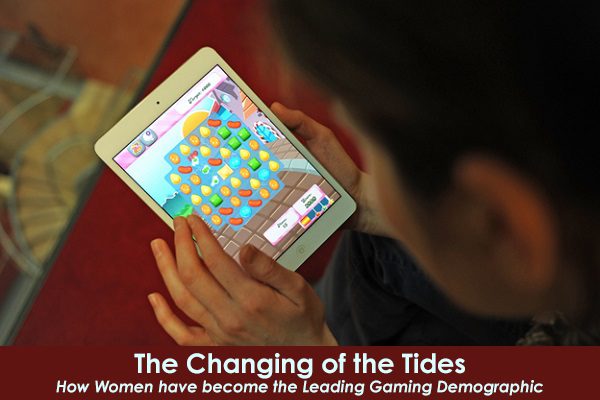The Follower Effect: What Makes Online Games So Addictive?
The gaming community is huge. With the introduction of smart phones, tablets and laptops, more and more people are becoming a part of the gaming world, enjoying the most popular applications, such as Candy Crush, Angry Birds, Mecca Bingo and Words with Friends. Gaming has never been easier to participate in, with everything being at the touch of our fingertips. So many pieces of technology mean our world has opened up to incorporate gaming into our everyday life. Whether we are sitting on a bus, chilling at home or having a lunch break at work, we constantly look for the opportunity to play some of the biggest and most sought after games.

But what makes a game so popular?
The biggest lure of any game is the social impact it has. When people begin talking about an application more and more people try it. No one wants to be left behind, in terms of what is popular and current, and the follower effect is key. If you can talk about it, play against others and share it socially, then you are on to a winner.
Gaming is different now. Before, game creators simply wanted fans to acknowledge the game. Play it a few times and attempt to create a buzz around it so it would become a leading title for a bit. But this isn’t the case anymore. Now, game creators want to gain your attention, and keep hold of it, whilst gently nurturing fans’ competitive nature, the need to beat friends and other players. Gaming is now more about loyalty and branding, than ever before, and by captivating the player’s attention and encouraging them to discuss it, it secures the brand’s position and the future of the game.
Some of the most addictive games become just that, because they feed our need to make social connections, interact and engage with other people. This is exactly why social media platforms such as Facebook and Twitter are so popular and important.
Whilst games used to be solitary activities, today’s games encourage players to interact with others. Candy Crush was one of the first games to connect through Facebook and encourage people to play against one another. People used this game to form a common interest and a bond.
It only takes one person to play a game which leads to interest from their immediate social circle, as they can see a game played on a person’s social media account and even be invited to play this way. It is the follower / social effect that causes a game to be so popular, rather than the components of the game, the rewards that are achieved or the difficulty of the application.
This article was written by Amanda Walters, an experienced freelance writer and regular contributor to Huffington Post. Follow her here: @Amanda_W84
Image Source:



